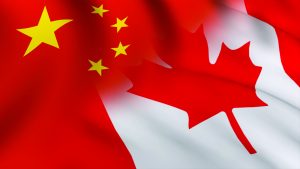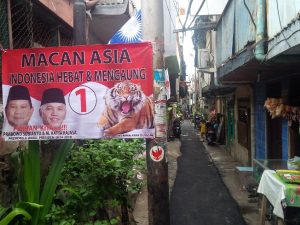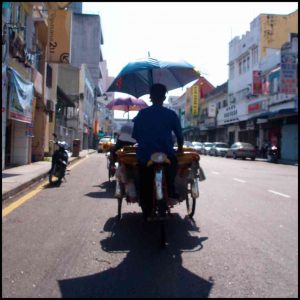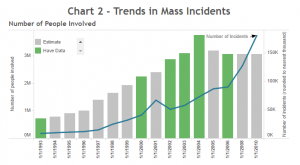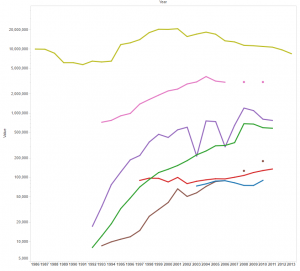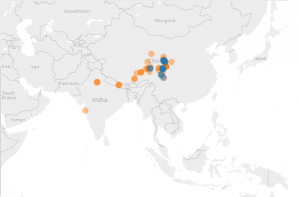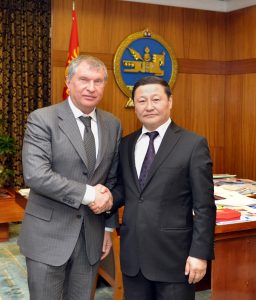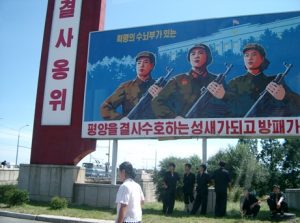Canada – China FIPA: Just the Facts, Please
Memo #313 By Matthew Levine – matthew.a.j.levine [at] gmail.com Canada’s Foreign Investment Promotion and Protection Agreement with China (China FIPA), which entered into force October 1, 2014, is a laudable step towards norms-based economic relations in the Asia-Pacific. My two goals here are to briefly introduce key developments in the China FIPA and to put […]
After the Massacre of 2011: Challenges to Peace and Security along the Mekong River
Memo #312 By Kai Chen – chenkai [at] zju.edu.cn In the so-called “Mekong River massacre” of October 2011, 13 Chinese merchant sailors working on the Mekong were seized and murdered by members of the Hawngleuk Militia led by its Burmese leader Naw Kham. Later captured in Laos and extradited to China, Naw Kham was found […]
The Perilous Start and Uncertain Future of the Jokowi Era in Indonesia
Memo #311 Editor’s Note: On Friday, October 10, 2014, UBC’s Institute of Asian Research hosted a conference examining the theme, “The Jokowi Era: A New Age for Indonesia?” In advance of this gathering, one of its participants, Dr. Kai Ostwald, provided us his take on what the election of “Jokowi” signified for the world’s third largest democracy. By Kai Ostwald […]
The Year in Malaysian Politics: Democracy’s Crooked Trajectory
Memo #310 By Kai Ostwald – kai.ostwald [at] ubc.ca In the run-up to Malaysia’s 13th General Election in May 2013, optimists argued that the country had finally transitioned from decades of semi-authoritarian rule to a competitive de-facto two party system of democracy. The election itself exposed several flaws in the system, namely that high levels […]
Big Noise, Big Settlement: the Logic of Claims-making in China
Memo #308 By Sophia Woodman – Sophia.Woodman [at] ed.ac.uk The twenty-fifth anniversary of China’s nationwide democracy movement and its suppression in June 1989 was marked in the mainland by an imposed silence. Revisiting the “verdict” that the demonstrations were a “counterrevolutionary rebellion” does not appear to be on the horizon. But this does not mean […]
Are Chinese Citizens becoming more Assertive? Perspectives from the (Limited) Data
Memo #307 By Sophia Woodman – Sophia.Woodman [at] ed.ac.uk The last decade has seen an explosion of academic and media reporting about protests in China. Chinese citizens’ access to social media makes it harder for the authorities to suppress information about unrest. Even when mainstream media reporting is censored, often the news of an event […]
Counter-Insurgency in Afghanistan: Whose Violence is it Anyway?
Memo #305 By Dur-e-Aden – dur-e-aden [at] hotmail.com While fighting an insurgency, it is important never to harm civilians. Doing so will increase recruitment for insurgent groups and result in fuelling the conflict. This is known as the “population-centric” counter-insurgency doctrine. By this logic, it also follows that if insurgents use violence on the local […]
Suicide Protesters in Eastern Tibet: The Shifting Story of a People’s Tragedy
Memo #302 By Antonio Terrone – a-terrone [at] northwestern.edu The recent wave of self-immolations across the Eastern Tibetan regions of the People’s Republic of China continues to leave the world in dismay for both its violence and determination. They also represent a new shift in terms of the demography of protesters in Tibetan society. Among […]
By Pipe and Rail: Russia in Search of Shorter Routes to Asian Markets
Memo #301 Putin Prioritizes Geo-Economics over Geo-Politics By Mendee Jargalsaikhan – mendee [at] alumni.ubc.ca Russia’s largest state-owned oil giants, Transneft and Rosneft, as well as Russian railroad authorities are again eyeing Mongolian routes as the shortest, most efficient, and safest way to Asian markets. Russia’s previous transport options to these markets—through the Russian Far East (RFE), […]
Power in a Black Box: Kim Jong-Un’s Rule in North Korea
Memo #300 By Isozaki Atsuhito Most observers expected that the seven high officials accompanying the motor hearse of Kim Jong-Il the Supreme Leader of the Democratic People’s Republic of Korea in December 2011 would become the core support of the young successor, Kim Jong-Un. Some even saw the possibility of the North Korea ruling system […]
